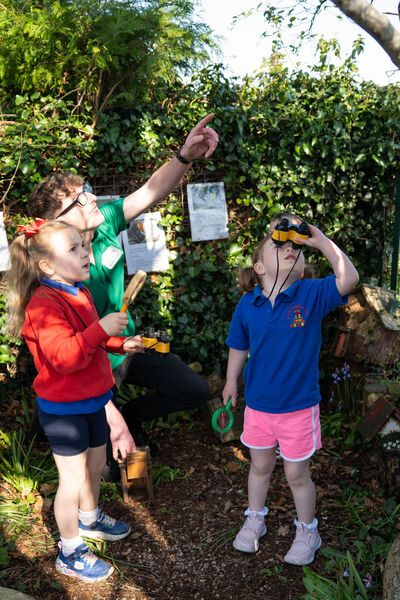Biodiversity
 What is Biodiversity?
What is Biodiversity?
Biodiversity is the variety of life—plants, animals, fungi, and even bacteria—in all habitats, from forests and ponds to schoolyards and hedgerows.

What Can Schools Do?
-
Use school grounds for nature-based learning
-
Encourage positive attitudes toward plants, animals, and the environment
-
Involve pupils in planting, habitat care, and monitoring species
-
Reduce your school’s ecological footprint
-
Connect biodiversity to the curriculum (e.g. science, geography)
Explore our resources, case studies, and outdoor learning guides to get started.
Junior Pollinator Plan
Help children learn how to protect bees in fun, simple ways.
Click here to download the resource.
Spotlight: Help Save Hedgehogs!
Hedgehogs are disappearing from the UK, mainly due to habitat loss and chemicals in gardens. You can help by:
-
Leaving out food (wet cat/dog food, banana)
-
Creating wild corners with long grass or log piles
-
Building a simple hedgehog house
-
Checking bonfires before lighting
-
Leaving gaps in fences for hedgehog movement
-
Adding ramps to ponds for easy escape
Download this lovely information leaflet on Hedgehogs
Please also take a look at this useful resource on how to detect hedgehogs.
Biodiversity identification support resources
- Beetles & Bugs Identification A1, A3 & A4
- Bramble & Insect Identification A1, A3 & A4
- Dandelions & Insect Identification A1, A3 & A4
- Ivy & Insect Identification A1, A3 & A4
- Transformations by Metamorphosis A1, A3 & A4
- Nettles & Insects A1, A3 & A4
- Pest control A1, A3 & A4
- Pollinator Identification A1, A2, A3 & A4
- Natural waste disposal experts A1, A3 & A4

